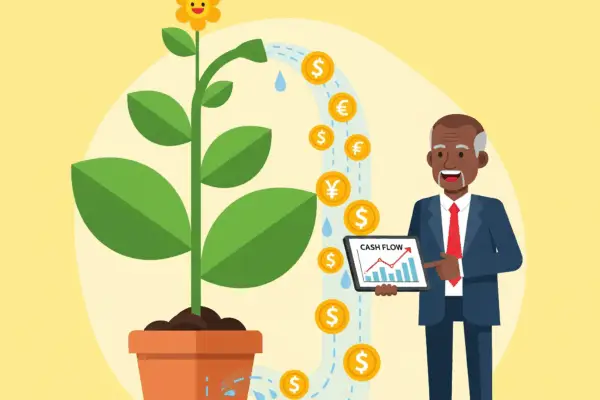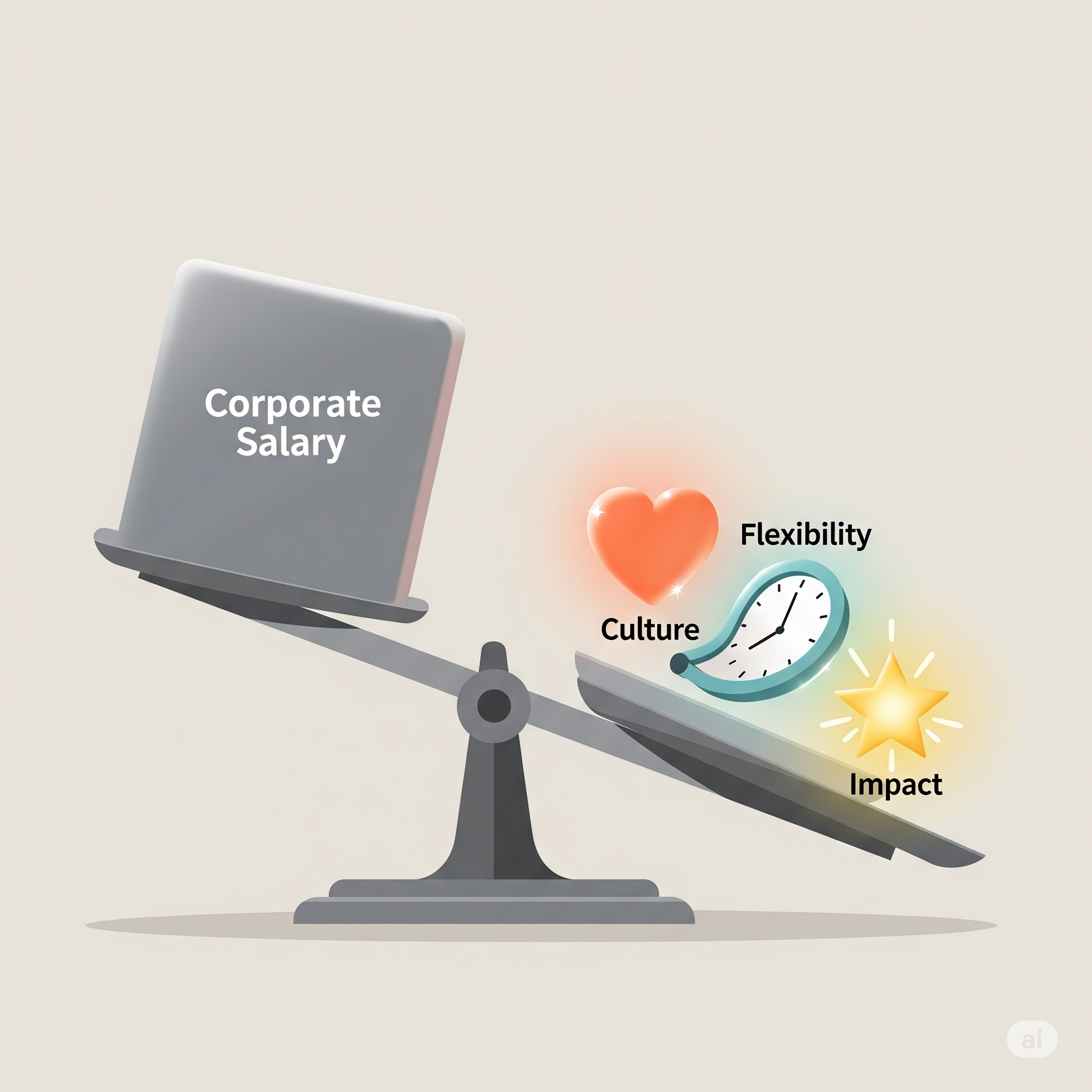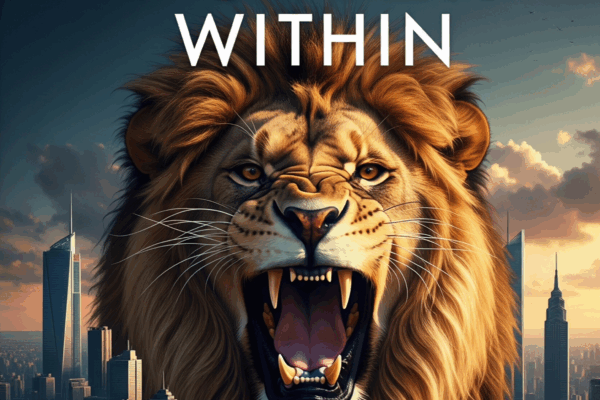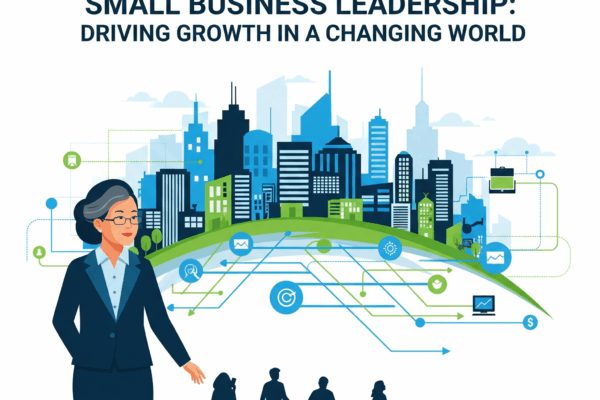The Roar of the Dying Lions – The Old Gods of Business Are Dead
It’s a scene replayed countless times in the grand theatre of commerce: the once-mighty titan, a name synonymous with an entire industry, suddenly falters. Think of Blockbuster, Kodak, or countless manufacturing giants who believed their reign was eternal. They heard the whispers of change, the rustling of new paradigms, but dismissed them as fleeting trends, the inconsequential buzz of gnats at the feet of giants. They clung to their well-worn playbooks, their established dogmas, their “sacred truths” of market dominance. And then, almost imperceptibly at first, then with brutal swiftness, their world crumbled. The ground beneath them, once so solid, turned to quicksand.
This isn’t just a story of poor adaptation; it’s a visceral illustration of a concept famously, and often provocatively, articulated by the 19th-century philosopher Friedrich Nietzsche: “God is dead.” When Nietzsche penned these words, he wasn’t making a simplistic theological statement. He was diagnosing a profound cultural shift – the erosion of a single, overarching source of meaning, value, and truth that had long anchored Western civilization. For Nietzsche, this “death” signified the crumbling of established certainties, universally accepted moral codes, and unquestioned authorities.
Fast forward to the 21st century, and the echo of Nietzsche’s pronouncement resounds with unnerving clarity in the halls of global business. The “gods” of the old business order – predictable market cycles, lifelong careers with a single company, the unassailable dominance of legacy brands, the illusion of permanent stability – are, if not dead, then certainly in their twilight throes. We operate in a VUCA world: Volatile, Uncertain, Complex, and Ambiguous. Technological disruption isn’t an occasional storm; it’s the new climate. Consumer values shift like desert sands, driven by social awareness, digital connectivity, and a yearning for authenticity. Geopolitical tremors constantly redraw economic landscapes.
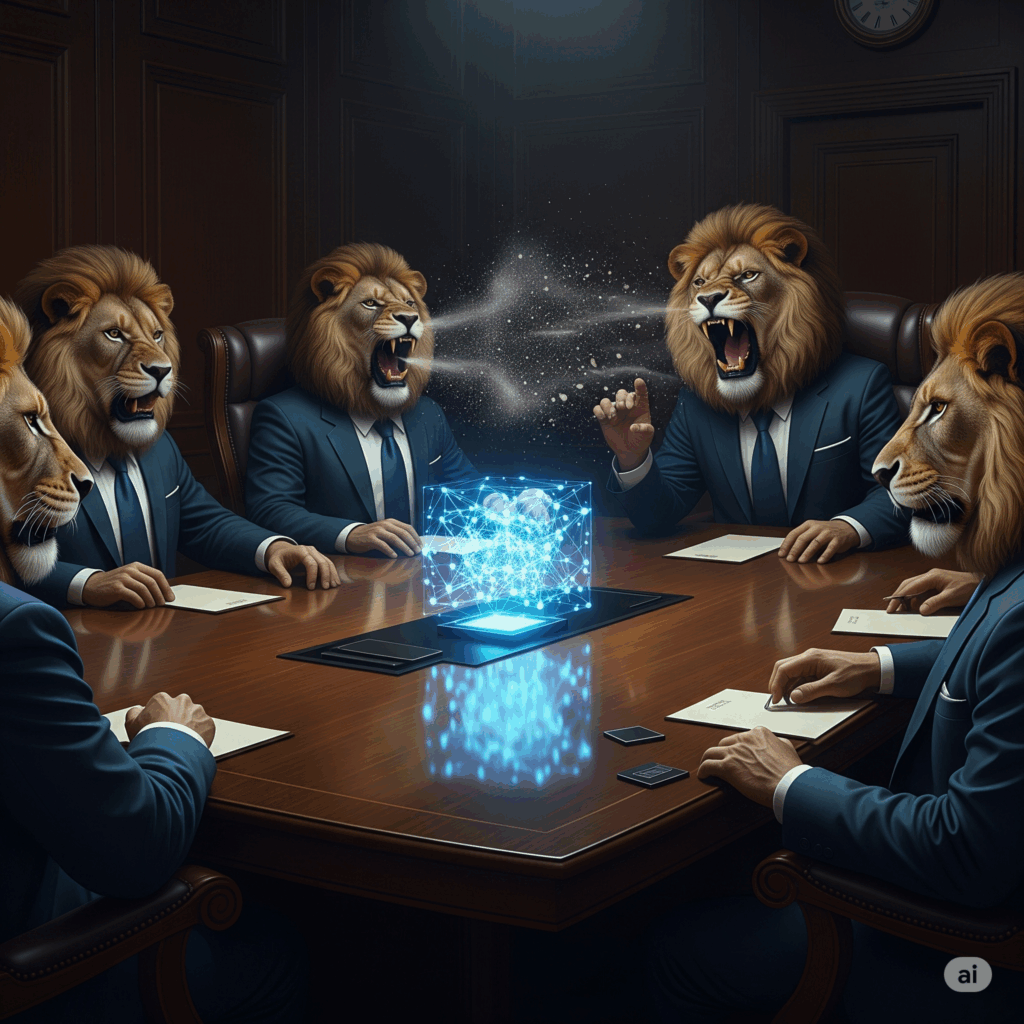
This “death of God” in the business context creates a palpable vacuum. Many leaders, an entire generation perhaps, feel adrift. Their MBA-minted maps seem to describe a world that no longer exists. In this uncertainty, the temptation is to grasp for fleeting trends, to mimic the perceived successes of others, or worse, to retreat into a defensive crouch, desperately trying to protect the vestiges of a fading era. This is the path of the herd, a reactive scramble for perceived safety that often leads only to homogenization and, eventually, obsolescence.
But herein lies the profound opportunity that Nietzsche himself, a philosopher of radical affirmation, would have relished. This void, this absence of preordained paths and guaranteed outcomes, is precisely the space where true leadership can emerge. It is an invitation to create, to define, to sculpt new meanings and forge new values. It is the fertile ground upon which visionary leaders can cultivate a vision so potent, so authentic, that it not only transcends the reactive cacophony of the herd but allows them to genuinely command their niche. This is the challenge and the promise: to become a leader who doesn’t just navigate the new world but actively shapes it, using their authentic voice, their articulated vision, as their most powerful instrument.
The Will to Power: The Engine of Authentic Vision and Enduring Impact
To embark on this path of creation, the leader must first connect with a fundamental driving force, another cornerstone of Nietzschean thought: the “Will to Power” (Der Wille zur Macht). Now, let’s clear the air. This concept has been tragically misunderstood, often caricatured as a crude desire for domination, a justification for tyranny, or a celebration of brute force. While Nietzsche’s provocative style sometimes invited such interpretations, his deeper meaning points to something far more nuanced and essential.
The Will to Power, in its more profound sense, is the inherent, dynamic impulse within all living things – and by extension, within vital organizations – to strive, to grow, to overcome obstacles, to express their inherent strength, and to achieve mastery. It is not merely the will to survive, but the will to flourish, to expand one’s influence, to realize one’s fullest potential, and to impose form upon chaos.

In the context of leadership, the Will to Power manifests in several critical ways:
* Self-Mastery: Before a leader can shape an organization or an industry, they must first engage in the ongoing process of shaping themselves. This is the Will to Power directed inwards – the relentless drive to overcome personal limitations, to learn from failures, to acquire new knowledge and skills, and to refine one’s character and judgment. The leader who embodies this internal striving radiates a quiet confidence that is far more compelling than bluster.
* The Creative Urge: This is the Will to Power as the architect of the new. It’s the burning desire to build something that hasn’t existed before, to innovate beyond incremental improvements, to solve intractable problems with elegant, audacious solutions. It’s the force that compelled Steve Jobs to “put a ding in the universe,” or Elon Musk to pursue seemingly impossible goals in space exploration and sustainable energy. It’s the passionate dissatisfaction with the status quo that fuels genuine progress.
* Organizational Drive: A visionary leader doesn’t hoard this Will to Power; they channel it, awakening and directing it within their entire organization. It becomes a collective striving for excellence, a shared hunger to be the best in their field, to push the boundaries of what’s possible, and to make a tangible, meaningful impact on the world. This isn’t about pressure from the top down; it’s about cultivating an environment where this intrinsic drive can emerge organically from every individual.
* Resilience and Overcoming: Nietzsche understood that life, and by extension business, is characterized by resistance and struggle. The Will to Power is what allows a leader and an organization to confront these obstacles not as deterrents, but as opportunities for growth, affirmation, and the expression of strength. Setbacks are not seen as defeats, but as challenges that hone capabilities and clarify purpose. This resilience is born from a deep-seated belief in one’s ability to overcome and create value even in adversity.
This active, striving force stands in stark contrast to a passive, reactive existence in the business world. The leader animated by the Will to Power isn’t simply responding to market shifts; they are anticipating and shaping them. They are not content to merely occupy a space; they seek to define it.
And crucially, the voice of this power must be articulated. When a leader, through their blog, their keynote speeches, their internal communications, authentically expresses this fundamental drive – this passion for creation, this commitment to excellence, this unwavering belief in the capacity to overcome – it acts as a powerful magnet. It galvanizes teams, who see their own desire for meaning and impact reflected in their leader’s vision. It attracts customers and partners who resonate with this vibrant, striving energy, preferring it to the lukewarm pronouncements of the complacent. Think of leaders whose very language pulses with this energy, making you believe that anything is possible. That is the Will to Power given voice.

Ascending the Mountain: The CEO as Übermensch – Forging Values Beyond the Marketplace Noise
If the “death of God” creates the opening and the Will to Power provides the engine, then the Übermensch (often translated as “Overman” or “Superman”) represents Nietzsche’s ideal for what humanity – and in our context, leadership – can become in response to this new reality. The Übermensch is not a comic book superhero with fantastical powers, nor is it about achieving some kind of biological or intellectual perfection. Rather, it’s a state of being, a model for a leader who has transcended the limitations of conventional thinking and the “herd mentality” that so often stifles genuine innovation and courage.
The Über-Leader, in this Nietzschean sense, is the architect of values. In a world where old values have lost their hold, this leader doesn’t search frantically for new ones to adopt from external sources. Instead, they create them. They define what “good,” “valuable,” and “meaningful” mean for their organization, their culture, and their contribution to the world. This leader embraces the awesome responsibility of shaping their company’s destiny and its very soul. They understand that profit is a byproduct of purpose, not the sole purpose itself.
Nietzsche described a metaphorical journey of the spirit towards becoming the Übermensch, a path that resonates deeply with the evolution of a transformative leader:
* The Camel: The spirit first becomes a camel, the beast of burden. The camel kneels to take on heavy loads – the traditions, the duties, the established knowledge. For a leader, this is the essential phase of learning the craft, understanding the industry inside out, mastering the fundamentals, and respecting the lessons of the past. It’s about discipline, humility, and absorbing the “weight” of responsibility. Without this foundational work, any attempt at rebellion or creation is merely naive.
* The Lion: In the loneliest desert, the camel transforms into a lion. The lion seeks to conquer its freedom, to become master in its own desert. Its sacred “No!” confronts the “great dragon” named “Thou Shalt” – the embodiment of all imposed duties and values of the old order. For the leader, this is the disruptive, questioning phase. It’s the courage to say “No!” to outdated norms, to challenge industry dogma, to reject the “way things have always been done.” The lion fights for the freedom from old constraints, clearing the path for something new.
* The Child: But freedom from is not enough. The lion, for all its power, cannot create new values. For that, the spirit must become a child. The child is innocence and forgetting, a new beginning, a game, a self-propelling wheel, a first movement, a sacred “Yes!” The child represents the creative impulse in its purest form. For the leader, this is the visionary phase. Having thrown off the shackles of the old and claimed their freedom, they now joyfully and creatively affirm new possibilities, build new structures, and establish new values from a place of fresh perspective and untrammeled imagination. This leader says a profound “Yes!” to the challenge of creating meaning.

So, what are the practical steps for an aspiring Über-Leader? It begins with radical self-assessment and an unflinching honesty about one’s own motivations and the company’s true standing. It demands the courage to deviate from industry norms, not for the sake of rebellion, but in service of a deeply held, unique vision. It requires defining a clear, compelling “Why” – a purpose that transcends the balance sheet and ignites passion. And critically, it involves building a culture that not only supports this vision but empowers every individual to contribute to its realization.
And how is this Über-Vision communicated? The leader’s blog, their public pronouncements, their consistent narrative become the modern-day equivalent of Zarathustra’s speeches from the mountaintop. It is here that the new values are articulated, the journey is shared, and the call to co-create this new reality is issued. When a CEO authentically shares the “why” behind their unconventional choices, when they publicly define what their company stands for (and what it stands against), they are not just informing; they are inspiring trust, loyalty, and a shared sense of purpose. Think of a leader who, facing immense pressure, makes a difficult decision based on clearly articulated ethical principles, thereby forging a stronger identity for their company. That is the Über-Leader in action, using their voice to inscribe new values onto the blank slate of the future.
Master Morality for Market Shapers: Leading the Charge, Not Joining the Chorus
Nietzsche’s exploration of morality provides another potent lens through which to view leadership: the distinction between Master Morality and Slave Morality. This isn’t about judging individuals as “good” or “bad,” but about understanding the origins and characteristics of different value systems, which can be directly applied to organizational cultures and market strategies.
* Master Morality, in a business context, originates from a position of strength, confidence, and proactive innovation. Companies and leaders operating from this framework define “good” on their own terms – what is excellent, powerful, creative, and life-affirming for the organization and its ambitious goals. They are the agenda-setters, the market shapers. They value calculated risk-taking, true differentiation, and the forging of a unique identity. Their actions are driven by an internal locus of control and a desire to create value as they define it.
* Slave Morality (or perhaps more aptly termed “Herd Morality” in business) emerges from a reactive posture, often rooted in fear, envy of more dominant players, or an overriding desire for safety and acceptance. “Good” is defined more by what is common, what is safe, what is “approved” by the majority, or simply what is not being done by the perceived “masters” (market leaders). This often leads to conformity, risk-aversion, imitation rather than innovation, and a focus on incremental improvements within existing paradigms. Nietzsche identified “ressentiment” as a key characteristic of slave morality – a subtle, often unconscious, tendency to devalue or criticize what one cannot achieve or dare not attempt.
Take an honest look at your industry. Herd behavior is often rampant: companies chasing the same fleeting trends, hastily copying competitor features without understanding the underlying strategy, employing generic marketing language that blends into a sea of sameness, and an overriding fear of genuine differentiation that might alienate a perceived mainstream. This is the siren song of herd morality – the illusion of safety in numbers, which often leads to a crowded, undifferentiated, and low-margin middle ground.

The leader’s crucial role is to actively cultivate a culture of Master Morality within their organization. This involves:
* Championing Originality: Creating an environment where independent thought and novel ideas are not just tolerated but actively encouraged and rewarded.
* Rewarding Intelligent Risk-Taking: Understanding that innovation inherently involves the possibility of failure, and distinguishing between reckless gambles and well-considered experiments.
* Defining Success Internally: Establishing clear metrics of success that align with the company’s unique vision and values, rather than solely relying on external benchmarks or competitor actions. The question is not just “Are we beating X?” but “Are we becoming who we aspire to be?”
Your blog, your company’s public voice, becomes a powerful instrument for enacting Master Morality. Are you using it to:
* Assert a Unique Perspective? Even if it’s provocative or challenges conventional wisdom?
* Set the Agenda? Are you initiating important conversations in your industry, or merely reacting to themes already in play?
* Showcase True Strengths? Are you confidently highlighting what makes your company genuinely different and valuable, without apology or equivocation?
* Avoid the Echo Chamber? Do you dare to sound unlike anyone else, to offer insights that are truly fresh and proprietary to your experience and vision?
Consider a company blog that consistently questions the unquestioned assumptions in its field, that offers bold, data-backed predictions, or that transparently shares its own unique methodologies and philosophies. This is Master Morality in content form – it doesn’t wait for permission to lead; it simply leads.
The Eternal Recurrence of Your Vision: Crafting a Message Worthy of Infinite Echoes
Nietzsche presented one of his most challenging and profound ideas as a thought experiment: the Eternal Recurrence. Imagine, he urged, that a demon were to creep into your loneliest loneliness and tell you: “This life as you now live it and have lived it, you will have to live once more and innumerable times more; and there will be nothing new in it, but every pain and every joy and every thought and sigh and everything unutterably small or great in your life will have to return to you, all in the same succession and sequence.” How would you react? Would you throw yourself down and gnash your teeth, or would you embrace this prospect as the ultimate affirmation of your existence?
For a leader, applying this “heaviest weight” to their vision, their decisions, and their communications is the ultimate test of conviction and authenticity.
Is your company’s core mission, its fundamental “Why,” something you would proudly champion not just for the next quarter, or the next five years, but for eternity? Does it possess an enduring truth and value?
Are the values you espouse in your vision statements, your marketing materials, and your blog posts authentically lived within your organization, day in and day out? Or would their infinite repetition expose a chasm between rhetoric and reality?
Is the content you publish, the messages you craft, truly meaningful and impactful? Does it offer genuine insight, or is it ephemeral noise, destined to be forgotten? Would you want this specific blog post, this particular speech, to echo infinitely as a representation of your leadership?
To lead and communicate with the weight of Eternal Recurrence in mind is to strip away the superficial, the expedient, and the inauthentic. It fosters a profound commitment to enduring principles, to actions of integrity, and to words that carry genuine significance. It compels a leader to ask: “Am I building something, saying something, being something that I would will to repeat forever?” This isn’t about achieving a flawless, error-free existence; it’s about living and leading with such passion, purpose, and affirmation that even the struggles and imperfections are embraced as integral parts of a valued whole.

Thus Spoke the CEO – Your Voice, Your Vision, Your Command
The landscape of modern business, with its “dead gods” and crumbling certainties, is not a wasteland to be feared, but a frontier of immense possibility. It is an open invitation for a new kind of leader to emerge – one who, armed with Nietzschean insight, dares to create rather than merely conform.
This leader understands that their role is one of continuous creation: the creation of tangible value for customers, yes, but also the creation of meaning for their team, the creation of a resilient and adaptive culture, and the creation of a distinct and compelling identity in the marketplace. They are animated by an authentic Will to Power – a drive for excellence and impact. They aspire to the ideal of the Über-Leader, forging new values and courageously charting their own course. They cultivate a Master Morality, choosing to shape their industry rather than be shaped by it. And they craft their vision with the profound intentionality that comes from imagining its eternal recurrence.
In this endeavor, your voice – articulated through your blog, your public appearances, your every communication – is not an afterthought or a mere marketing tactic. It is your hammer, as Nietzsche might say, with which you test old idols and shape new realities. It is the essential instrument for bringing your unique vision to life, for rallying those who share your values, for transcending the undifferentiated herd, and for truly commanding your chosen niche.
So, embrace the challenge. Tap into your deepest Will to Power. Dare to step towards your Übermensch potential. And use your authentic voice, not to echo the noise, but to speak your truth, to forge your vision, and to craft a legacy you would gladly, joyfully, relive for eternity. The world awaits the resonant call of leaders who are not afraid to say, “Thus I will it. Thus I create it.”
Thank you for your time and I’d love to hear what you have to say. Leave a comment below and let’s continue the conversation.

